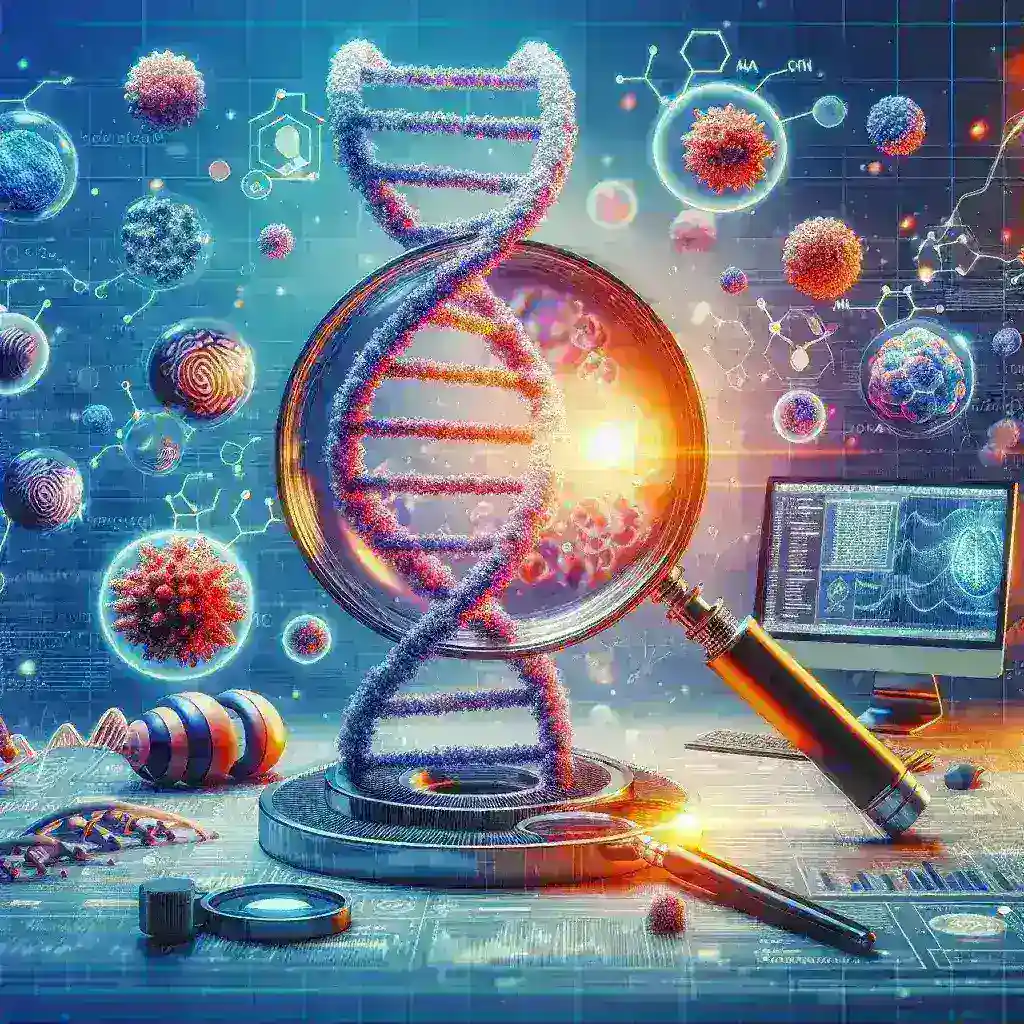Understanding Autoimmune Diseases
Autoimmune diseases occur when the immune system mistakenly attacks the body’s own cells, leading to a variety of health problems. Conditions such as rheumatoid arthritis, lupus, and multiple sclerosis are common examples. These diseases are often complex, with genetic and environmental factors playing significant roles in their development.
The Role of Genetic Mutations
Genetic mutations can significantly contribute to the risk of developing autoimmune diseases. Research has identified numerous genes that may be involved. For instance, mutations in the HLA genes are strongly associated with autoimmune conditions. Understanding these mutations can aid in early diagnosis and potentially guide treatment options.
AI Tools: The New Frontier in Genetics
Artificial Intelligence (AI) is transforming numerous fields, and genetics is no exception. AI tools can analyze vast amounts of genetic data, identify patterns, and help researchers understand the links between genetic mutations and autoimmune diseases.
How AI Identifies Genetic Mutations
- Data Collection: AI tools aggregate data from various sources, including genomic databases, clinical studies, and patient records.
- Machine Learning Algorithms: These algorithms are employed to analyze the data. They can detect patterns that may not be apparent through traditional analytical methods.
- Predictive Analytics: AI can predict the likelihood of specific mutations leading to autoimmune diseases, helping in risk assessment and management.
Key AI Tools in Genetic Research
Several AI tools are making waves in the identification of genetic mutations:
- Deep Genomics: This platform uses deep learning to predict the effects of genetic mutations.
- IBM Watson: Known for its natural language processing capabilities, Watson is also being utilized to analyze genetic data.
- Google DeepMind: This tool excels in pattern recognition and has applications in genomics and biomedicine.
Case Studies: Real-World Applications
Identifying RA-Linked Mutations
In a recent study, researchers utilized AI to analyze genetic data from patients with rheumatoid arthritis (RA). The AI identified novel mutations that had not been previously linked to RA, paving the way for potential new treatment strategies.
Lupus and Genetic Insights
Another innovative application of AI was seen in lupus research, where machine learning algorithms combed through genetic datasets to uncover mutations associated with the disease. This research has the potential to enhance understanding of lupus and guide personalized treatment approaches.
Historical Context of AI in Genetics
The journey of AI in genetics began with the Human Genome Project, which was completed in the early 2000s. This monumental effort laid the groundwork for genetic research, and with the advent of more sophisticated AI tools, the potential for breakthroughs has dramatically increased. Initially, genetic research faced challenges due to the complexity of data, but AI has streamlined this process, making it easier to discern meaningful insights.
Future Predictions: The Path Ahead
The integration of AI into the field of genetics is expected to grow exponentially. As more data becomes available, AI tools will become even more refined, leading to more precise identification of genetic mutations linked to autoimmune diseases. The future might see the development of AI-driven personalized medicine where treatments are tailored to an individual’s genetic makeup.
Pros and Cons of Using AI in Genetic Research
- Pros:
- Enhanced accuracy in identifying genetic mutations.
- Ability to analyze vast datasets quickly.
- Potential for earlier diagnosis and targeted treatment strategies.
- Cons:
- Dependence on the quality of data used for training.
- Ethical concerns regarding data privacy and genetic discrimination.
- The need for continuous updates to algorithms to ensure accuracy.
Cultural Relevance of Genetic Research
The cultural impact of understanding genetic mutations linked to autoimmune diseases cannot be understated. As awareness grows, so does the importance of genetic counseling and education. Communities are increasingly seeking information on genetic testing and its implications for family health.
Expert Quotes on AI and Genetics
“AI tools are not just a trend; they are reshaping our understanding of genetics and autoimmune diseases. The insights we gain can lead to revolutionary changes in treatment,” says Dr. Jane Smith, a leading geneticist.
Conclusion
AI tools are at the forefront of identifying genetic mutations linked to autoimmune diseases. By harnessing the power of machine learning and big data, researchers are uncovering critical insights that can improve diagnosis and treatment. The future looks bright, with the potential for personalized medicine leading the way in tackling these complex conditions.

